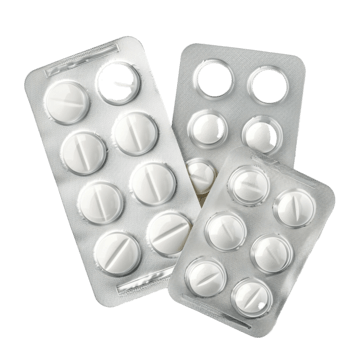Ranitidine

Ranitidine 75mg, 150mg, 300mg
Ranitidine is a medication that belongs to the class of histamine-2 (H2) receptor antagonists, primarily used to reduce stomach acid production. It is effective in treating conditions such as gastroesophageal reflux disease (GERD), peptic ulcers, and Zollinger-Ellison syndrome, providing relief from symptoms like heartburn and indigestion. Ranitidine works by blocking the action of histamine on the stomach’s acid-producing cells, leading to decreased acid secretion and promoting healing of the gastrointestinal tract.
Order NowDescription
Ranitidine is a medication that belongs to a class of drugs known as H2 blockers, which are used primarily to reduce stomach acid production. It is effective in treating various gastrointestinal conditions by blocking histamine from binding to H2 receptors in the stomach lining, thereby decreasing acid secretion and promoting healing of ulcers and esophagitis.
Uses / Indications
- Gastroesophageal reflux disease (GERD)
- Peptic ulcers (gastric and duodenal ulcers)
- Zollinger-Ellison syndrome (excess stomach acid production)
- Prevention of gastric ulcers in patients taking NSAIDs
- Treatment of erosive esophagitis caused by acid reflux
Dosage and Administration
Adults:
150 mg taken twice daily or 300 mg once daily, depending on the condition being treated.
Children:
Dosage typically based on body weight and specific condition, to be determined by a physician.
Note: Always follow your doctor’s instructions regarding dosage and administration.
How It Works (Mechanism of Action)
Ranitidine works by selectively blocking H2 histamine receptors in the stomach lining. This action leads to a decrease in the production of gastric acid, providing relief from symptoms associated with acid-related disorders and allowing for the healing of damaged tissue.
Side Effects
Common side effects:
- Headache
- Dizziness
- Constipation or diarrhea
- Nausea
Rare/serious side effects:
- Severe allergic reactions (rash, itching, swelling)
- Heart rhythm changes (arrhythmia)
- Liver problems (yellowing of the skin or eyes)
Seek medical attention if serious side effects occur.
Precautions / Warnings
- Inform your doctor if you have liver or kidney disease or if you are pregnant/breastfeeding
- Use caution if combining with medications that affect liver function
- May alter results of certain medical tests; notify the healthcare provider in advance
Drug Interactions
May interact with:
- Antacids (may decrease effectiveness of ranitidine)
- Certain antifungal medications
- Some benzodiazepines (increase sedative effects)
- Medications that use liver enzymes for metabolism
Always inform your healthcare provider about any other medications or supplements you’re taking.
Storage Instructions
- Store at room temperature (20°C–25°C / 68°F–77°F)
- Keep away from moisture, heat, and direct light
- Do not freeze the liquid form
- Keep out of reach of children
Missed Dose / Overdose
Missed a dose?
Take it as soon as you remember. If it’s almost time for your next dose, skip the missed one. Do not double up.
Overdose symptoms:
- Severe confusion
- Fast or slow heart rate
- Fainting
- Severe dizziness
Contact a poison control center or seek emergency medical help immediately.
Contraindications
- Allergic to ranitidine or any component of the formulation
- Severe liver disease
Brand Names / Alternatives
- Zantac
- Rani-Tab
- Ranitidine
- Generic name: Ranitidine

